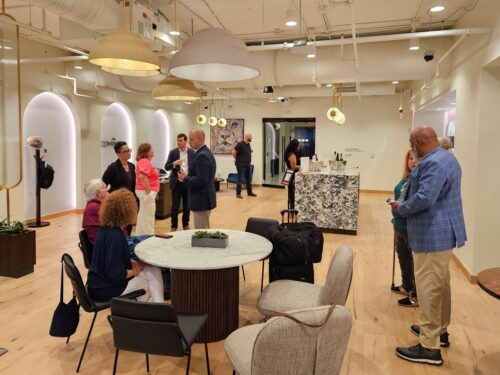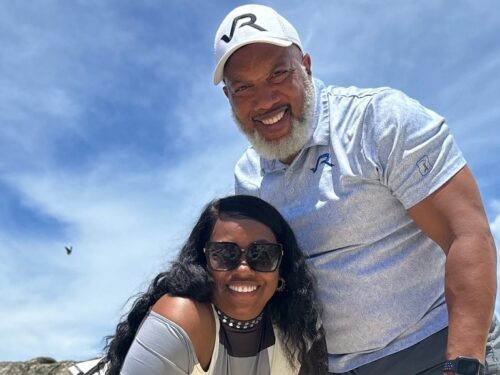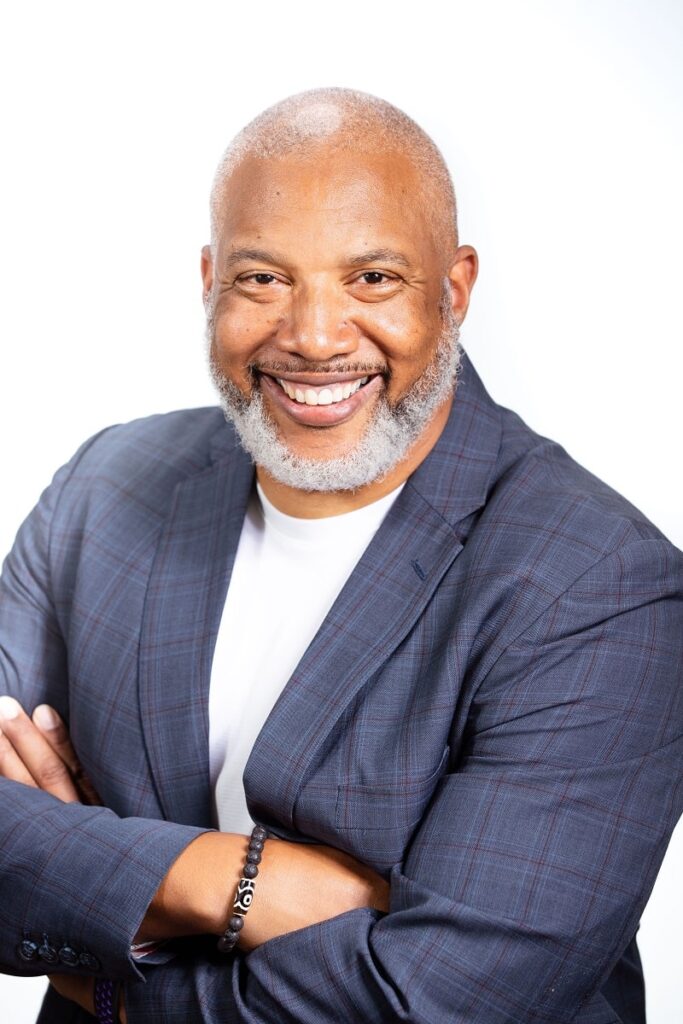Hope: Hope is the belief that circumstances in the future will be better.
Last year I asked the following question on Twitter, “Would you ever want to sit down and break bread with the person who hurt you or who altered your life significantly by their actions. But, in doing so also put you on a path for redefining who you were?
When I had two legs and was a soldier in the U.S. Army I was on the All-Army Track & Field Team. I had the fortunate experience to qualify for two Olympic Trials. I competed once in the 110m high hurdles and once in the 400m hurdles. It was an incredible experience to be ranked as high as 25th in the 110’s and 17th in the 400’s. It meant I had met the Olympic standard.
Another incredible experience I had was making the Armed Forces Track & Field Team and competing in the World Military Championships, also known as CISM. These games, which are for military members only, are hosted in various countries one year prior to the next Olympic/Paralympic Games.
According to Wikipedia, “The International Military Sports Council (IMSC) or Conseil International du Sport Militaire (CISM), established 1948, is one of the largest multidisciplinary organizations in the world. It was founded on 18 February 1948 with Belgium, Denmark, France, Luxembourg and the Netherlands, as its first five members, today, it is the second largest sports body in the world after the IOC, and organizes various sporting events, including the Military World Games and World Military Cup for the armed forces of our 133 member countries.”
The cool thing about CISM is that soldiers who may previously have met on the battle field, now meet in friendship on the sports playing field. Sports becomes the platform for healing the scars of war. The CISM motto is, “friendship through sport.” A motto that profoundly resonates with me.
When I was in Lido di Ostia, Rome, the competition location where the military CISM took place, I was amazed, awestruck, and even stupefied that countries that had fought wars against each other were marching into Opening Ceremony together for a competition on the playing field of sport. Later, I saw the same countries breaking bread and eating breakfast or dinner with each other. I was inspired to say the least.
According to the United Nations Website on Sport for Development and Peace, “Sport has a unique power to attract, mobilize and inspire. By its very nature sport is about participation. It is about inclusion and citizenship. It stands for human values such as respect for the opponent, acceptance of binding rules, teamwork and fairness.”
All one has to do let a soccer ball loose on a field throughout most of the world and people from all walks of life will come running to play the game. It does not matter their social status, their class, race, ethnicity, gender or age, they come to play.
But can sport be the platform for larger issues such as war. CISM seems to have a perspective on this topic that I find fascinating. Putting teams together that compete in friendship is far better than competing for the high ground against an enemy using live rounds.
Having fought with the U.S. Army during Operation Desert Storm and against the Iraqi Army, I don’t know what my mental state would be if I were to meet up with one of the Republican Guard who might have killed one of my battle buddies. When my CISM experience happened the Gulf War had not yet kicked off. So, I can only speculate on what my reactions might have been.
Yet, I do know that soldiers who are engaged in battle fight for their comrades to come home. They share a common bond of being in the fight together. It is a unique bond of brother and sisterhood that only those who have been in any battle can truly attest too. And, if a person ever served in a combat zone they (we) do not come back the same. It does not matter whether that person was in serious skirmishes, a large battle or was out on patrol; war just changes a persons perspective on life.
When I ended my term of service from both the Military and the Civilian sector of the United States Army I found myself in a unique opportunity. I was in a place where I would be able to help other injured veterans (as I was helped); overcome their mental, physical and spiritual state after an injury through the use of sport.
This program which started out with a small sports clinic at Walter Reed Army Medical Center has grown into a vibrant and robust platform for injured military veterans to utilize sport as part of their rehabilitation.
It was then that I thought back to my time at CISM in Lido di Ostia, Rome, and the motto, “Friendship through sport.” Sports is a powerful platform for bringing people together from all walks of life. I began to think that with the current conflict / war that was happening in Iraq and Afghanistan, would there be a place for sport in the future to allow healing to come to these warring nations?
Now, I don’t believe that sport in of itself has the power to do it. I just believe it can be used as a tool or platform to enhance the opportunity for change. It is up to us to change and that change comes from being inspired.
George Bernard Shaw say this about change,
“The reasonable man adapts himself to the world; the unreasonable one persists in trying to adapt the world to himself. Therefore, all progress depends on the unreasonable man.”
There are three platforms I believe work to bring solidarity and change.
The first one I have been discussing is sport.
Sport just has a way of creating a safe environment for opposing ideas to be vetted. Every team wants to be the victor and yet they play (generally within a set of rules). It is also platform to bring about many social changes.
I think about how China’s doors were re-opened to west by a simple game of ping pong. Or, how South Africa came into a better state of solidarity after the oppressive rule of Apartheid through World Cup Football (soccer to U.S. folks) as was depicted in the movie “Invictus.”
Sir Ludwig Gutteman first introduced the idea of using sport as a tool for rehabilitation back in 1948. He is considered the founder of the Paralympic movement. His idea was that sport (the sport of Wheelchair basketball) was perfect for getting soldiers who suffered spinal cord injuries in WWII to advance in life based on the competitiveness of this sport platform.
The second platform for uniting people is music. Music is a part of every culture. People who play in bands or in orchestras can play anywhere in the world and with anybody who knows how to read music. Even if a person does not know how to read music, they generally can hum a tune on key.
The final platform that brings people together is food. People have to eat and conversations are always better, or worse, when food is around.
Think about it, when you go out to a new location whether abroad or in the close proximity to where you live, how do you usually describe that location? Many of us say, “The food was great.” And then the conversation goes on from there. Food is the third element that brings us together. Why? Because everyone has to eat!
Check out the “World Peace Festival” that happened on October 1st 2011 in Hawaii.
Now, getting back to CISM.
My thought was similar about the end state of how sports could shape a world. My hypothesis is that the Olympic and Paralympic Games are the closest venues to peace on earth that the world has.
All countries compete under the banner of peace.
Other people exploit this sport banner to advance their own social causes. They do this because their social cause gets greater attention when focused on an event that draws so many global viewers.
Visa even has a commercial on right now called, “Go World”, which celebrates the commonality of sport in all of us.
So, if the Olympic and Paralympic Games are close to peace on earth, then CISM gets more at the root of countries that have fought against each other and builds a bridge for them to dialogue.
This might be a scenario. A soldier injured by a roadside bomb or his counterpart, who was also injured in a similar fight on the same battlefield. Both heal in their respective countries with sport as the mechanism. They both grow strong and understand that the disability is not in their physical condition, but rather the limitations that only their minds hold for them.
They attend their countries respective sports camps and make the Paralympic team (Games for athletes with physical disabilities and visual impairments). The CISM games, which comes one year prior to the Paralympic Games hosts and event and these two athletes are competing for their respective counteries.
The two athletes march into the stadium under their nations flag and eventually meet up on the field of play. They engage in dialogue and discover that they share a commonality: they were both in the same fight, and both were injured on the same day in the same location.
Later they find themselves breaking bread over dinner and they are able to talk about their experiences with each other through hand gestures, facial expressions and other non-verbal forms of communication.
The physical scars are still visible, yet healed, but the internal wounds are still fresh. And still they are able to talk about their lives to each other and eventually come to a mutual soldiers respect, that the battle is over so the healing can begin.
Some people might be reading and find this as a hard concept to grasp. Breaking bread with your enemy is very hard and I don’t suggest this blog to be flipped. But there are examples of solidarity that resonate in this space of soldiers returning to where they once fought to make amends with the damage that was done both physically and emotionally.
The concept of soldiers going back and making peace in the areas they fought is not new. Soldiers still go back to France and recount the days of WWII and Normandy landing.
Vietnam veterans go back to Vietnam and make amends for the harshness of war that happened so long ago. In our minds we are decades removed, but for many, that experience is still being lived by the minds of those who fought it.
One of the most heroic of all revisits is the story of Lou Zamparini. You have got to read this guys story. There is a movie coming out about his life as well. This guy went back to make amends with people who used to beat him senseless while he was a prisoner of war!
For the past seven years I have been softly pursuing a gathering of injured veterans like this. A chance for true healing to begin. The war is over. The scars remain. And, scars can heal. I believe sport has the power to heal some of those scars. And, it won’t hurt to have some good music and better food to go along with healing process.
Three weeks ago a giant step was taken to make this vision a reality.
So, I ask the question again, “Would you ever want to sit down and break bread with the person who hurt you the most? Who altered your life and through their actions gave you a new you?”
If soldiers can do it, it begs the question to us all, can we make the first step towards amends with those in our lives who have hurt us the most?
I would enjoy the opportunity to hear your thoughts and opinions on this topic. Let me know what you think. And, stay tuned, because big dreams may just become giant realities in 2012!



